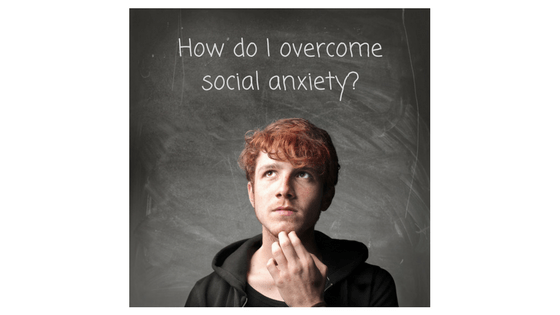This is a multi-part series explaining how to overcome social anxiety.
→ Next: What causes social anxiety?
At the core of your social anxiety is a fear that you will be judged negatively by others. The more you fear negative judgment, the more intense your symptoms and the more severe your social anxiety.
Ultimately, the fear of negative judgment—and the symptoms that follow—are stopping you from having the quality of life you want. They may be stopping you from graduating from school, interviewing for jobs, getting promotions, interacting with people, leading meetings, expressing your opinion in groups, and developing relationships. If the anxiety and symptoms are preventing you from functioning in life (school, career, relationships), I encourage you to seek treatment.
To find out if you have social anxiety I recommend you get a diagnosis from a therapist or psychiatrist. You can also take a free online social anxiety test here.
Social anxiety is treatable. We know this from extensive outcome studies. There are basically two types of treatment: Therapy and drugs/medications. Neither of these have 100% success rate for every person, but they do help many, many people. Without help, social anxiety can hang on for decades. You have very little to lose, and a lot to gain, if you reach out and get help.
If you have social anxiety (at levels that are getting in the way of your quality of life), you probably are using some thought patterns that have been found to cause "higher than normal" fear of negative judgment. The first part of a social anxiety treatment plan involves working on substituting that self-talk with more rational and realistic self-talk (creating a new script). The fact is, you're unaware of much of your self-talk. That's why I recommend doing this work with a therapist or coach with a speciality in social anxiety and cognitive-behavioral therapy (CBT). Just to manage your expectations, it takes some effort to identify your self-talk and write a healthier script, but it's an important investment in your quality of life.
In addition to thought patterns that are getting in your way, the fear center in your brain (the amygdala) is also setting off false danger alarms. When you enter a fearful social situation, you may be gripped with uncontrollable symptoms and it's embarrassing, distressing and confusing. The second part of the treatment plan addresses what's happening in your brain and nervous system, and why your body is acting like it's in a dangerous situation. The treatment involves gradual desensitization and habituation.
In addition to this blog series, you can take a self-paced online course that explains exactly why this is happening and clearly shows what's going on using easy-to-understand animations.
So let's jump in and explore how to overcome social anxiety. In this blog series we'll cover:
How to overcome social anxiety
Feel free to post comments or questions at the bottom of the page!
→ Next: What causes social anxiety?


